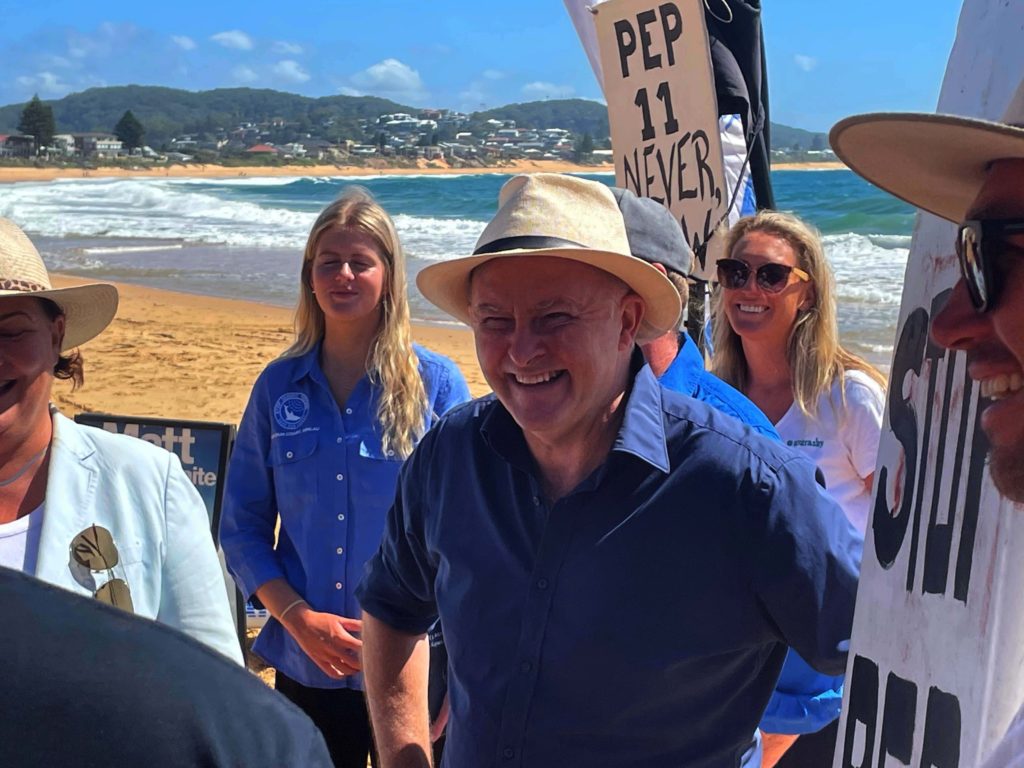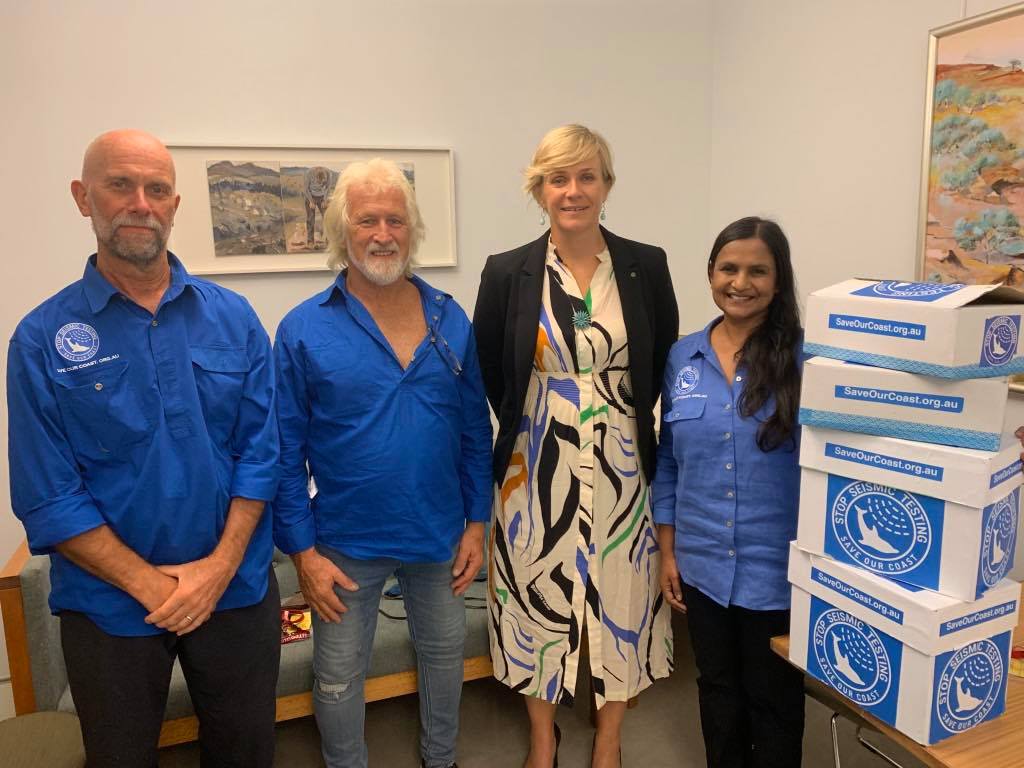The PEP11 oil and gas project, an offshore exploration initiative off the Central Coast, has resurfaced as a significant environmental and political hot potato with the project’s proponents asking the Federal Court for a review of the application currently frozen in procedural limbo.
Petroleum Exploration Permit no. 11, or PEP11, which covers an expansive ocean area between Sydney and Newcastle, has been a subject of much community consternation and political debate due to its potential environmental impact as well as potential effects on the local tourism industry and the broader implications for the nation’s energy and climate action.
The project was previously cancelled by former Prime Minister Scott Morrison, who used his undisclosed authority as a second Resources Minister to veto the permit.
However, that decision was later legally challenged with the new Labor Federal Government agreeing to allow for a fresh application process to proceed.
[ CCN June 2022: BPH Energy appeals refusal of PEP11 renewal in Federal Court ]
This shocked some locals,who witnessed the then Opposition Leader Anthony Albanese unequivocally commit to stopping the project in the lead-up to the last Federal election in 2021.

Independent Federal Member for Warringah Zali Steggalls has attempted to pass legislation in Federal Parliament specifically preventing any exploration or development along that section to the coast, similar to recent NSW Government legislation.

[CCN Oct 2020: The future of PEP11 debated in Federal Parliament ]
In another twist to the tale, Federal Resources Minister Madeleine King recused herself earlier in the year from deciding on the project, instead passing the decision-making powers to her colleague the Federal Industry Minister Ed Husic.
It is unclear why King did this, though it is likely because of her previous political commitments to cancel the project when she was in Opposition – something that would make any decision made by her challengeable in court.
The companies behind PEP11, including Asset Energy, Advent Energy, BPH Energy and Bounty Oil & Gas, argue that the project is important for meeting the state’s energy demands and potentially contributing to Australia’s net-zero targets by 2050 through proposed Carbon Capture and Storage (CCS) initiatives.
[ CCN April 2019: Asset Energy talks Petroleum Exploration ]
On the other hand, environmental groups and local communities are deeply concerned about the potential risks, such as oil spills, which could devastate the NSW coastline.
Community group Save Our Coast, which has spearheaded the campaign against PEP11 since 2017, says that detrimental impacts on marine life, particularly from seismic blasting, are known to disrupt or kill whales, fish and other sea creatures .
Save Our Coast previously collected tens of thousands of paper-based signatures which they presented to the Federal Parliament as a petition in 2020.
[ CCN Dec 2018: Petition circulated to stop seismic testing ]
This huge number of signatures helped convince all political parties, coastal MPs and candidates to publicly declare their opposition to the project.
Notably, all councils along that section of the coast have also previously passed resounding motions against the project.
Earlier in 2024 the NSW Government with the support of the Opposition, independents and minor parties clearly showed its hand by legislating against offshore drilling in the state’s waters up to three nautical miles, or 5.5kms offshore.
[ CCN Feb 2024: NSW Government to legislate to prevent offshore gas and minerals exploration ]
However, the PEP11 proponent companies now propose to develop the oil and gas field in Commonwealth waters from 5.5km out to 20km offshore.
The future of PEP11 now hinges on decisions by the so-called state and federal Joint Authority, with a final determination now possibly being forced by a Federal Court order within 45 days.
This curiously unique project reveals the remarkable situation where the community, along with all levels of government, all political parties, all local MPs and candidates oppose the project and yet it remains very much alive.
David Abrahams




It would be nice if journalists got their facts correct before going to print. Firstly, there’s no chance of an oil spill from a gas only well. Secondly, it was never proposed to drill in NSW state waters. Finally, this is a nationally- significant project which is required to provide an affordable source of energy in the transition to renewable energy. Not a vote buying exercise by politicians pandering to the il-informed. How are a few wells more environmentally damaging than hundreds of monstrous wind turbines?
Thank you Paul. We take particular care to publish events as they occur and to cite sources of information already available. The article contains numerous links to stories that answer your questions. We found there were credible reports of gas exploration and drilling harming marine life. And likewise infomration about oil pollution on shorelines with both gas and oil extraction. We simply report on these realities to inform the public. We have also reported that 10s of thousands of ( not all ill informed) locals concerned that their beaches, industries and marine life and land values maybe impacted by an oil and gas field.
Wind turbines are a seperate issue that we have also reported on.